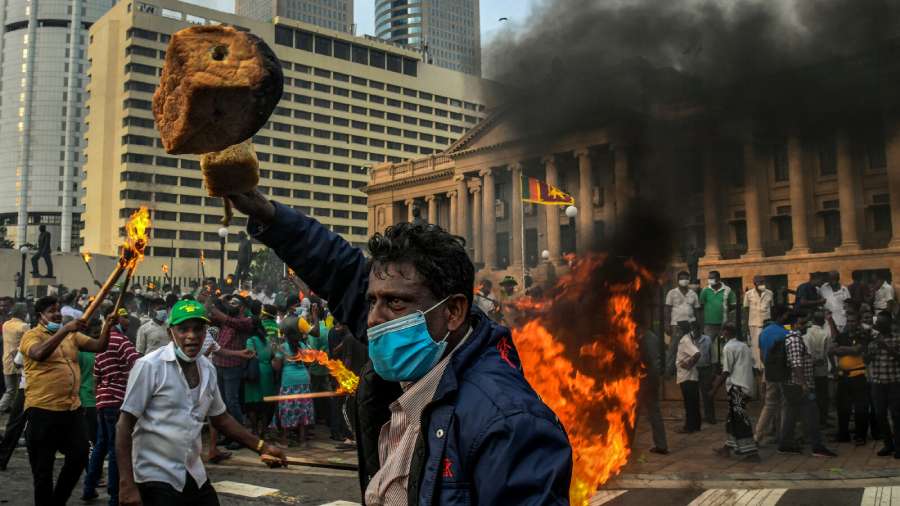The United States on Sunday urged Sri Lanka's political fraternity to come forward and work quickly to achieve long-term economic and political solutions to address the people's discontent, after thousands of irate protesters stormed the official residence of embattled President Gotabaya Rajapaksa and forced him to offer his resignation on Wednesday.
Rajapaksa would resign on July 13, Parliament Speaker Mahinda Yapa Abeywardena said on Saturday night, while Prime Minister Wickremesinghe has already expressed his willingness to resign amidst the worst economic and political crisis in the country.
The United States calls on the Sri Lankan parliament to approach this juncture with a commitment to the betterment of the nation not any one political party, a US State Department spokesperson said on Sunday.
We urge this government or any new, constitutionally selected government to work quickly to identify and implement solutions that will achieve long-term economic stability and address the Sri Lankan people's discontent over the worsening economic conditions, including power, food and fuel shortages, the spokesperson said.
The United States warned against attacks on protesters or journalists, but also criticised Saturday's violence.
President Rajapaksa's whereabouts were unknown and it is believed the 73-year-old leader left the house before the massive mob arrived.
The anti-government protesters also did not spare Wickremasinghe.
A group of protesters entered his private residence and set it on fire.
The Sri Lankan people have the right to peacefully raise their voices, and we call for the full investigation, arrest and prosecution of anyone involved in any protest-related violent incidents, the spokesperson added.
Rajapaksa has historically endured a thorny relationship with the United States over the dismissal of allegations of war crimes during Sri Lanka's decades-long civil war.
Nevertheless, Washington has over the past two months offered USD 120 million in new financing for Sri Lankan small and medium-sized businesses, a USD 27 million contribution to Sri Lanka's dairy industry and USD 5.75 million in humanitarian assistance to help those hit hardest by the economic crisis.
The United States has also committed USD 6 million in new grants to provide livelihood assistance to vulnerable populations, and technical assistance on financial reform that will help stabilise the economy.
Sri Lanka, a country of 22 million people, is under the grip of an unprecedented economic turmoil, the worst in seven decades, crippled by an acute shortage of foreign exchange that has left it struggling to pay for essential imports of fuel, and other essentials.











